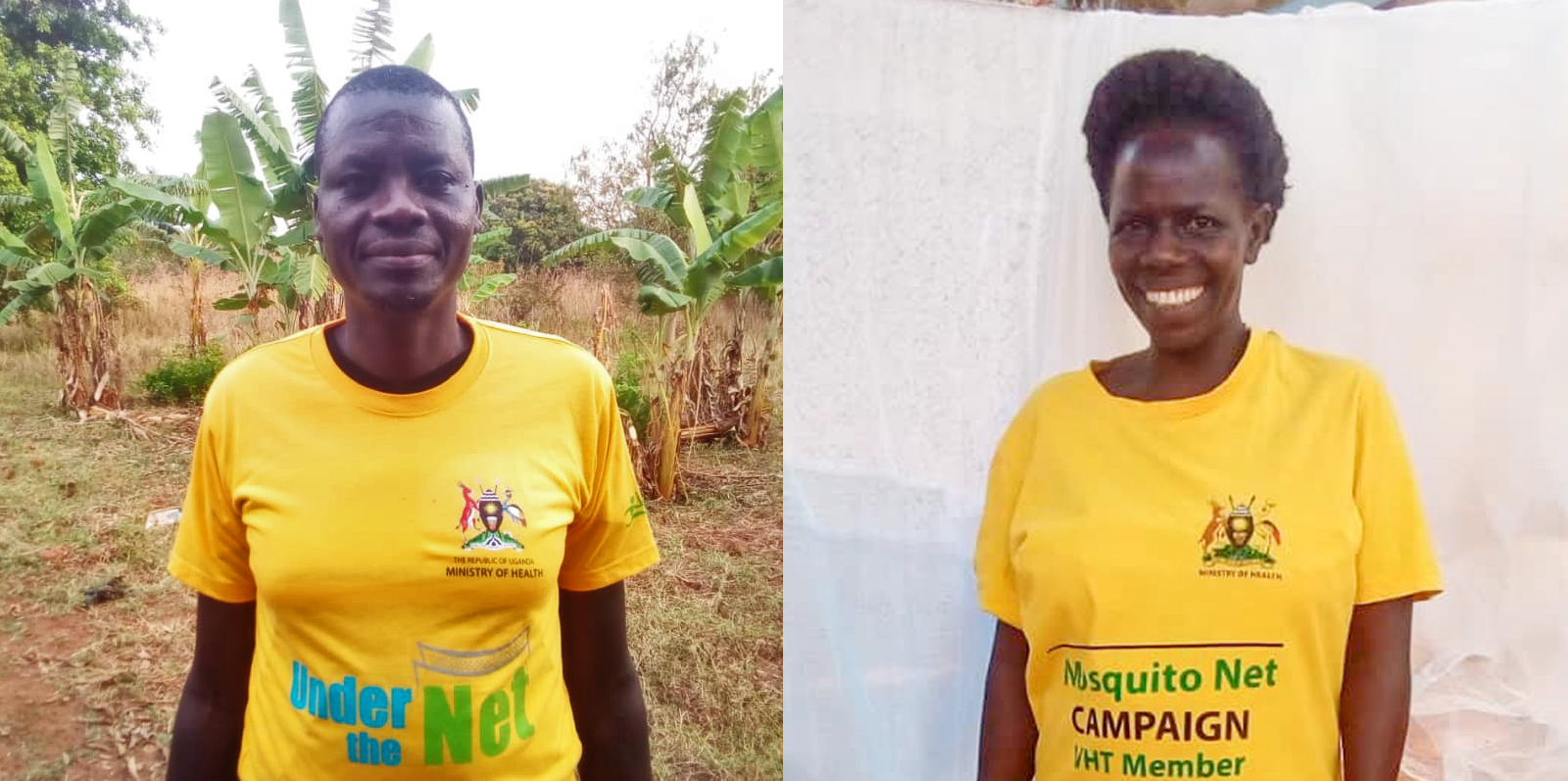Community Health Workers Offer Solutions to Extend Malaria Services

Community health workers distribute bed nets to primary school students in Kitgum District, Uganda. Photo courtesy Malaria Consortium.
To end malaria, no one can be left behind. However, despite great strides in reducing malaria incidence and deaths, some populations remain unreached. Trained community health workers, because of where they live and the trust people have in them, are one of the best cadres to reach those who have limited access to quality malaria services.
Chemonics International and Malaria Consortium recently hosted a webinar, “Extending Our Reach: Critical Actions to End Malaria,” and heard from Jenneth Aber and Charles Ojara, two Village Health Team (VHT), or community health, workers in Uganda. Jenneth and Charles are from the northern Kitgum District, a post-conflict area with a high malaria burden and a population of more than 250,000. Malaria Consortium has been working with the country’s Ministry of Health to support VHTs here since July 2018, delivering training and mentorship, and providing resources to assist them.
Below they share their solutions to further reduce malaria incidence and deaths and improve access to health services for unreached populations.

Charles Ojara (left) and Jenneth Aber (right) are Village Health Team (VHT), or community health, workers in Uganda. Charles has been a VHT worker for 16 years and Jenneth has been for 7 years.
Q: Who are the unreached?
Charles: The unreached can be people who are far away from health facilities or far from VHTs, like people who are farming and planting their crops deep inland. Unreached people may also be members of the military spending a long time camped in the bush, who we cannot access because we have no means of transport for reaching them.
Jenneth: Sometimes it is difficult to reach all the people who are nearby in the community as well. In the villages, there might be only two VHT workers serving 100 or 200 households or more, yet we are only supposed to oversee 25 households. That makes our work difficult.
Q: What are the biggest challenges that you face, and what would help?
Jenneth: We also have to follow all the people being discharged from the health facilities, like pregnant mothers, who have been on medication for malaria. And we don’t go to only one community. We go to a lot of communities because of the few numbers of VHTs. We need more VHTs to be trained. Then it would make our work possible, so we can reach every household, and we shall be proud of our work.
We have to be exemplary and smart because sometimes we are called nurses by the community, [and it is a big responsibility]. We always do an assessment for fever for children under five and always make a follow-up after treatment and make a referral if we see a serious sign. With more training we can get more knowledge and tools and give health talks, go to schools, go to churches. Then we can have better success in malaria control and prevention. It would also be good to make an exchange visit to other districts so that we learn more from other VHTs who are outside our district.
Charles: In many communities where we work, we have a low level of education and refresher training is key. Implementing agencies should make refresher training available for the existing VHTs.
Q: What other support is needed?
Charles: We have a shortage of medicine and delays in delivery of drugs that we are supposed to receive quarterly. We have many antiretrovirals but fewer antimalarials and test kits. If nongovernmental or international organizations, the government, or implementing agencies can give a constant supply of medications it would be very good to maintain our community health with equity.
We also lack protective gear and that makes our work difficult—all the things that can protect us against infections.
Jenneth: Also, we don’t have gumboots, umbrellas, or light for working at night.
Q: What should implementers keep in mind looking ahead?
Charles: Involve all political, religious, and opinion leaders in a country in discussions about malaria prevention.
Jenneth: On another level, we must improve on the cheapest preventive measures. This includes distribution of the insecticide-treated bed net. When nets are being distributed to the community, we as VHTs can go and sensitize people. We educate them how to use the net and how to manage it so malaria can be eliminated in our community.
The Third International Community Health Workforce Symposium will be held March 20–24, 2023, in Monrovia, Liberia, in support of “Advancing community health worker programs to build resilient and equitable health systems that accelerate primary health care for universal health coverage.” As part of the symposium, on March 24 at 10:30 a.m., Chemonics will host a concurrent session titled “No Stuff, No Service: How Can We Supply, Equip, and Protect CHWs to Deliver Health for All?” This session will bring together community health workers and global health and supply chain experts to identify what needs to change to fully support community workers down to the last mile. Click the link above to register for the event!
